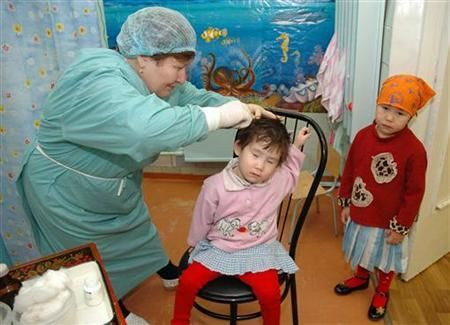New 'Super Lice' Strain Is Resistant To Antibiotics, Other Types Of Treatment

Doctors and dermatology experts in the United States are on the lookout for a new strain of head lice that is resistant to shampoos and treatments that contain certain antibiotics. These so-called “super lice” have become immune to normal lice medication and could spell trouble for children in middle schools where regular head lice can spread like wildfire.
According to the American Academy of Dermatology, around six and 12 million children between the ages of 3 and 12 contract head lice each year. While head lice do not carry disease, constant itching in the area around the scalp could lead to an infection.
Head lice treatments include over-the-counter and prescriptions medications that are usually applied to the hair and scalp. Active ingredients in certain products found over-the-counter include pyrethrin and permethrin, chemicals to which lice may have grown accustomed.
Prescription medications for head lice usually contain toxic substances that carry their own health concerns. For example, lindane is a prescription shampoo that has resulted in severe neurological side effects. The Centers for Disease Control and Prevention and the U.S. Food and Drug Administration do not recognize mayonnaise, olive oil, or butter as effective head lice treatments.
"We have a prescription medication that is stronger," Dr. Tom Portuese told YNN. "The evidence for the olive oil and natural treatments are not strong, therefore if you are sure of the diagnosis, use a proven method.”
Pediatric dermatologist Dr. Robin Gehris told CBS Pittsburgh that she comes across 10 patients each month that show signs of head lice that are resistant to treatments. “When you look in the literature there’s more and more reports of resistance among head lice,” Dr. Gehris told CBS. “Many of the over-the-counter products are very effective at treating lice on the very first pass.”
Parents should also remember to check their child’s clothing and bed sheets for any parasites. Children who have been cleared of head lice can experience a reinfestation if appropriate steps aren’t taken to ensure they are gone for good. Using head lice shampoo in combination with other shampoos or conditioners could also obstruct chemicals from reaching the targeted area.



























